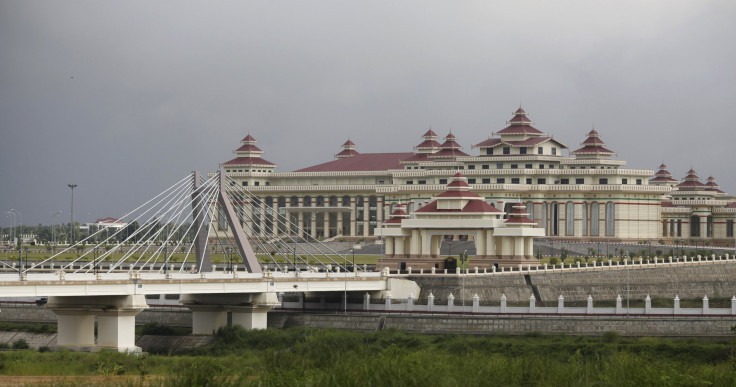Myanmar Is Now Home To An Increasing Number Of International Law Firms

Following major investments flowing into Myanmar, international law firms are now scrambling to get into the country for a piece of the action in the rapidly developing economy, as foreign investors and businesses building their presence in Myanmar will certainly require legal counsel.
Myanmar represents a new market for lawyers, not just investors. Before 2011, when the current government took over from the former military junta, the country was closed off culturally and economically, and remained stagnant in terms of development.
“The country needs power, roads, railways, telecommunication infrastructure, sophisticated oil refineries and a modern financial system among many other things,” said Alastair Henderson, a partner of the law firm Herbert Smith Freehills Singapore, according to the Lawyer, a legal news website based in the United Kingdom. “By the same token, this means there are tremendous opportunities for foreign engagement which didn’t exist until last year.”
But now, lawyers are following investors and businesses, their potential clients, into the country. At an international investment conference held in Myanmar at the end of the last year, partners and representatives from 11 large international firms were present.
Baker & McKenzie was one of the first global firms to establish a dedicated Myanmar practice. The firm launched a Myanmar center in its Thai office in April 2012, and four months later appointed its first Myanmar-qualified attorney, Saw Yu Win. Two junior local lawyers will soon join Saw.
“Since its establishment we’ve received an overwhelming number of enquiries from global clients,” said Clive Cook, co-head of Bakers’ Myanmar center. “Most clients are still at the stage of doing research, assessing risks, understanding the environment and trying to make decisions but recently a number of enquiries have come to fruition. The transactions generated are mostly in the oil and gas and telecom sectors.”
Although the market is still in the process of warming up, the most immediate opportunity lies in the oil and gas, and the telecom industries, as Myanmar has invited foreign energy companies to explore 23 offshore oil and gas blocks, and granted two telecom operating licenses to Telenor and Ooredoo.
Firms looking to grow their Myanmar practices face a common constraint – the lack of local lawyers well-versed in advising on commercial and corporate transactions, according to the Lawyer.
“Due to years of sanctions and military rule, almost no local lawyers have been exposed to commercial transactions - most have chosen to focus on litigation and other retail types of work,” said Chew, the managing partner of Zaid Ibrahim, a Malaysian law firm interested in Myanmar.
There are about 49,000 lawyers in Myanmar, consisting of around 9,000 advocates and 40,000 higher grade pleaders. According to lawyers familiar with the local market, only a small number of these lawyers have commercial experience, and most of these are in their 70s, according to the Lawyer.
Another concern for lawyers and investors alike is Myanmar’s lack of a complete legal framework in the country. An encouraging development in the past year was the enactment of the Foreign Investment Law.
“The investment law is a statement of the government’s intention to welcome and attract foreign investment,” said Robert Pé, a parter at Orrick Heerrington & Sutcliffe, based in Hong Kong. “It’s generous and lenient in places, but broad-brush and vague in others. There hasn’t yet been a flood of investment into the country. It’s important to update and revise black-letter law over time but, more crucially, there is a need to rebuild the rule of law.”
Pé added that the restoration of the rule of law needs to start with the basics such as training law draftsmen and instructing judges and civil servants on how to interpret, apply and implement the law fairly, according to the Lawyer.
“It’s gratifying to participate in the country’s legal and democratic development,” Pé said. “The country faces many complex issues and it takes a long time to iron them out, but it used to be one of the wealthiest countries in southeast Asia and the great potential that was realized in the past will be realized again.”
© Copyright IBTimes 2024. All rights reserved.











